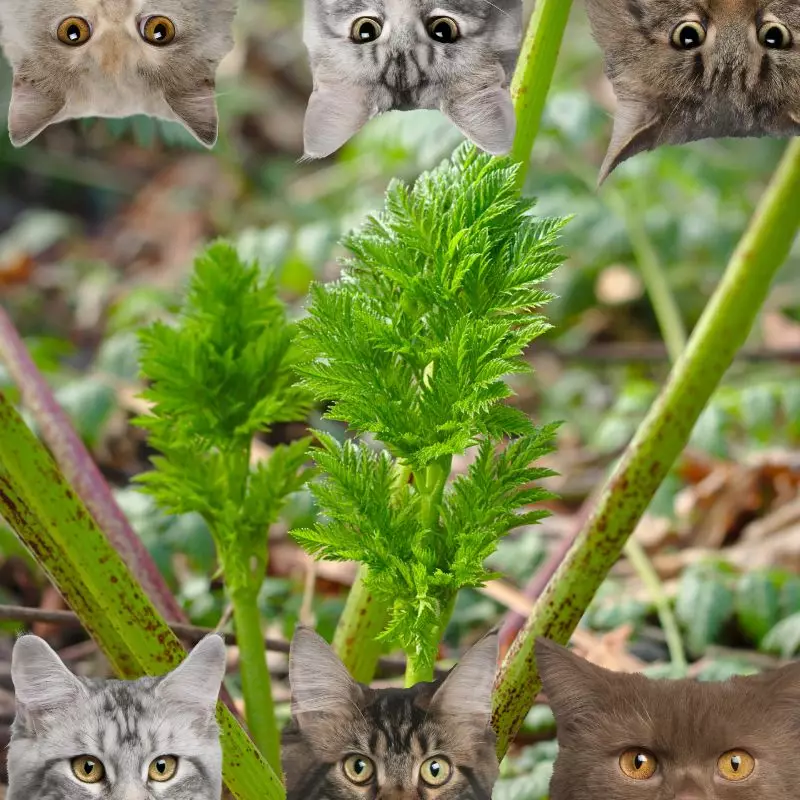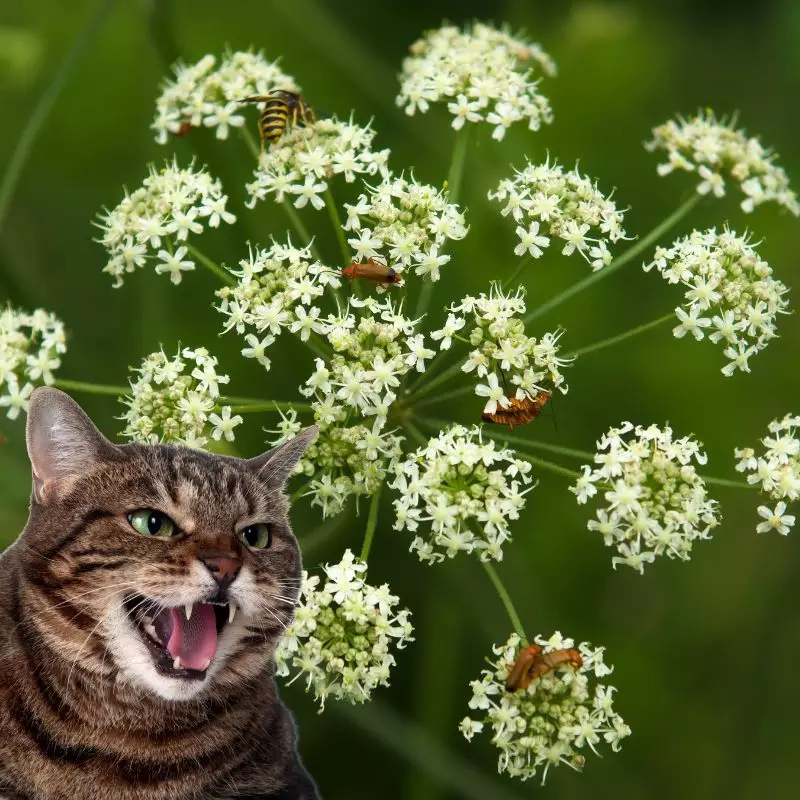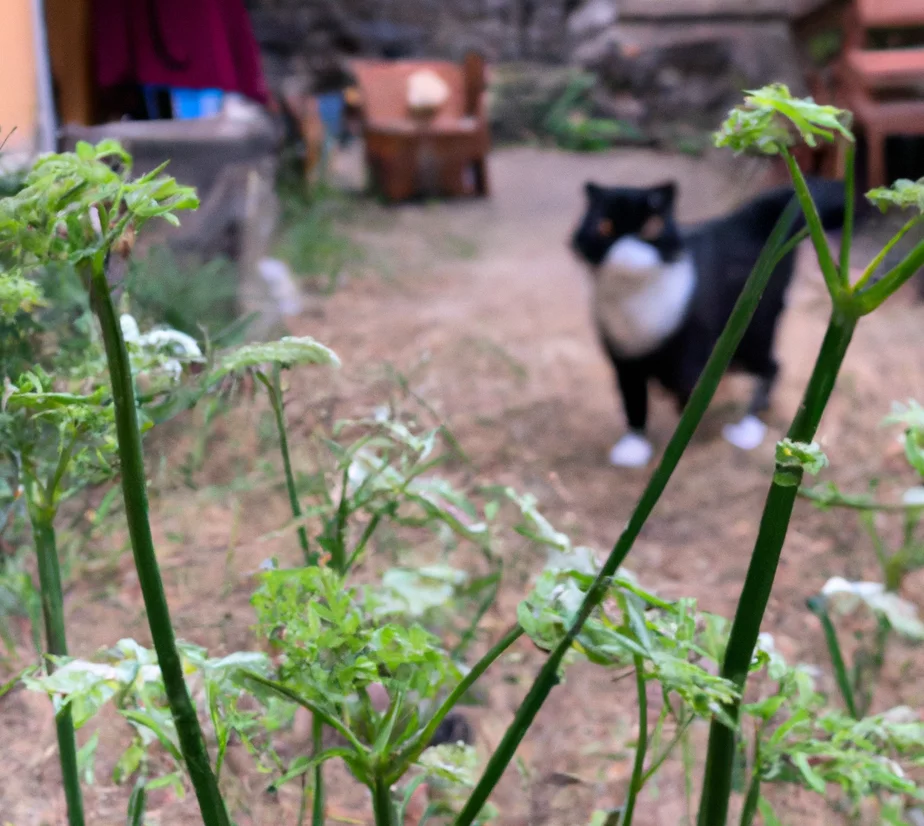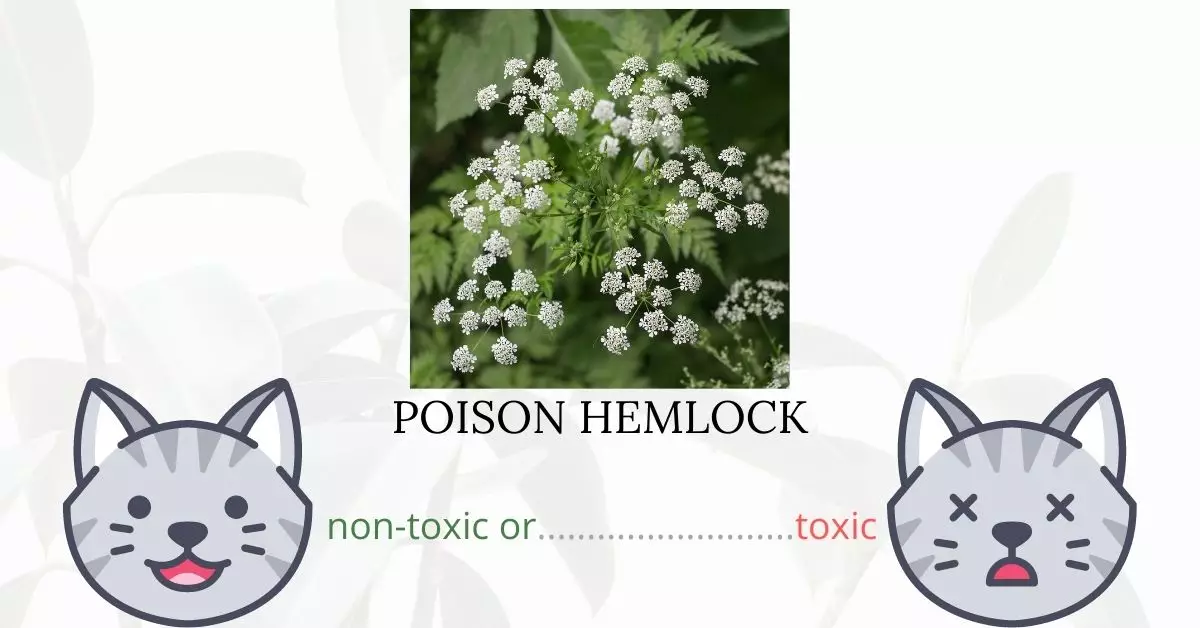Absolutely, Poison hemlock poses a severe risk to cats due to its high toxicity. It is a biennial herbaceous flowering plant loaded with several alkaloids, making every part of it, especially the seeds and roots, extremely poisonous to animals, cats included. When ingested by cats, exposure to poison hemlock can result in severe symptoms such as agitation, tremors, excessive drooling, diarrhea, paralysis, and in extreme cases, can be fatal.
This article is the result of a collaborative effort with a panel of experienced Doctors of Veterinary Medicine (DVMs), ensuring the provision of accurate, reliable, and up-to-date information on the potential hazards of various plants, including Poison Hemlock, and their effects on cats. Their invaluable insights and contributions allow us to present an authoritative view on this subject. To further validate the information shared, extensive research has also been conducted using high-authority websites like ASPCA and PetMD, guaranteeing the credibility and reliability of every piece of information related to plant toxicity provided herein.
Clinical Signs of Poison Hemlock Poisoning in Cats

Poison Hemlock toxicity in cats primarily occurs due to ingestion of any part of the plant, but inhalation of its spores or direct skin contact can also lead to poisoning. When a cat comes into contact, inhales, or consumes Poison Hemlock, the toxins present in the plant interfere with the normal functioning of the cat’s body, leading to the manifestation of several clinical signs. Here’s a more detailed look at each of these symptoms and the underlying causes behind them:
- Agitation: The toxins can affect the cat’s nervous system, leading to elevated levels of distress and irritability as the body tries to combat the invading substances.
- Tremors: The harmful alkaloids in Poison Hemlock disrupt the normal neurological functions, causing involuntary muscle contractions and shakiness as the nervous system is compromised.
- Drooling: The ingestion of poison hemlock triggers excessive salivation due to irritation and inflammation of the mouth and gastrointestinal tract.
- Diarrhea and Vomiting: The toxic compounds induce gastrointestinal upset, causing the body to expel the harmful substances through vomiting and diarrhea as a defensive response.
- Paralysis: The severe neurotoxic effects of the alkaloids can lead to the loss of muscle function and mobility, rendering the cat unable to move.
- Death: In severe cases, the overwhelming amount of toxins can cause multiple organ failure and systemic collapse, leading to the unfortunate demise of the affected cat.
Each of these symptoms is a manifestation of the body’s response to the severe toxic effects of Poison Hemlock. Immediate veterinary intervention is crucial if a cat is suspected to have come into contact with or consumed this plant, to prevent the progression of symptoms and to mitigate the damage caused by the toxins.
First Aid and Treatment of Poison Hemlock Poisoning in Cats

The vet will start by inducing vomiting to remove any remaining plant matter in your cat’s stomach. The vet will need to keep an eye on your cat to make sure he doesn’t become dehydrated from vomiting. If your cat becomes dehydrated, he or she will require intravenous fluids to avoid further complications.
Toxins that remain in your cat’s stomach can also be absorbed with activated charcoal. To flush out the stomach, the vet can perform gastric lavage, which is a stomach wash.
Recovery from Poison Hemlock Poisoning in Cats

The sooner your cat receives care, the more likely he is to make a full recovery. Your cat may need to be monitored by a veterinarian after therapy. If your cat was dehydrated or required a respirator during treatment, this is more likely. Maintain a quiet and comfortable environment for your cat when he returns home.
Prevention of Poison Hemlock Poisoning in Cats
Keep your cats healthy and well-maintained indoors. By keeping them entertained and mentally stimulated indoors, it will reduce the risk of cats wandering away far from home and encountering toxic plants in your neighborhood.
If you love plants but have cats at home, check out these lists:





